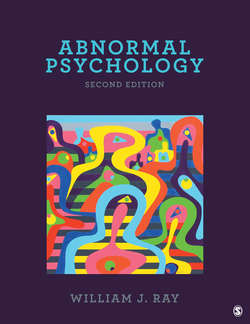Читать книгу Abnormal Psychology - William J. Ray - Страница 117
На сайте Литреса книга снята с продажи.
The Experimental Method: Making It Happen
ОглавлениеJust finding that a relationship exists between two events does not allow us to determine exactly what that relationship is, much less that one event actually caused the other to happen. If we want to state that one event produced another event, we need to develop a much stronger case for our position.
To do this, we could see how some single event over which we have control affects the phenomenon we are studying. In this way, we begin to interact with the phenomenon. We structure our question in this form: If I do this, what will happen? Numerous questions can be asked in this way, such as, Will people with depression learn words better in a foreign language if each word is of the same class (e.g., negative emotional words) than if they are from a variety of different classes (some emotional, some objects, some neutral words)?
experimental method: scientific research technique in which the influence of an independent variable (IV) on a dependent variable (DV) is determined, using carefully structured conditions
As our knowledge grows, we may even get to the point of formulating specific predictions. In particular, our questions are structured in this form: If I do this, I expect this will happen. Sometimes our predictions are more global, and we predict that one factor will be stronger than another. We might predict that more people are likely to help a stranger if they perceive the environment to be safe than if they think it is dangerous. At other times, however, we may know enough about an area to make a more precise prediction or point prediction. For example, we might predict that 3 months of exercise will lead to a drop in self-reported depression on a standard scale. These approaches, in which we interact directly with the phenomenon we are studying, are examples of the experimental method.
